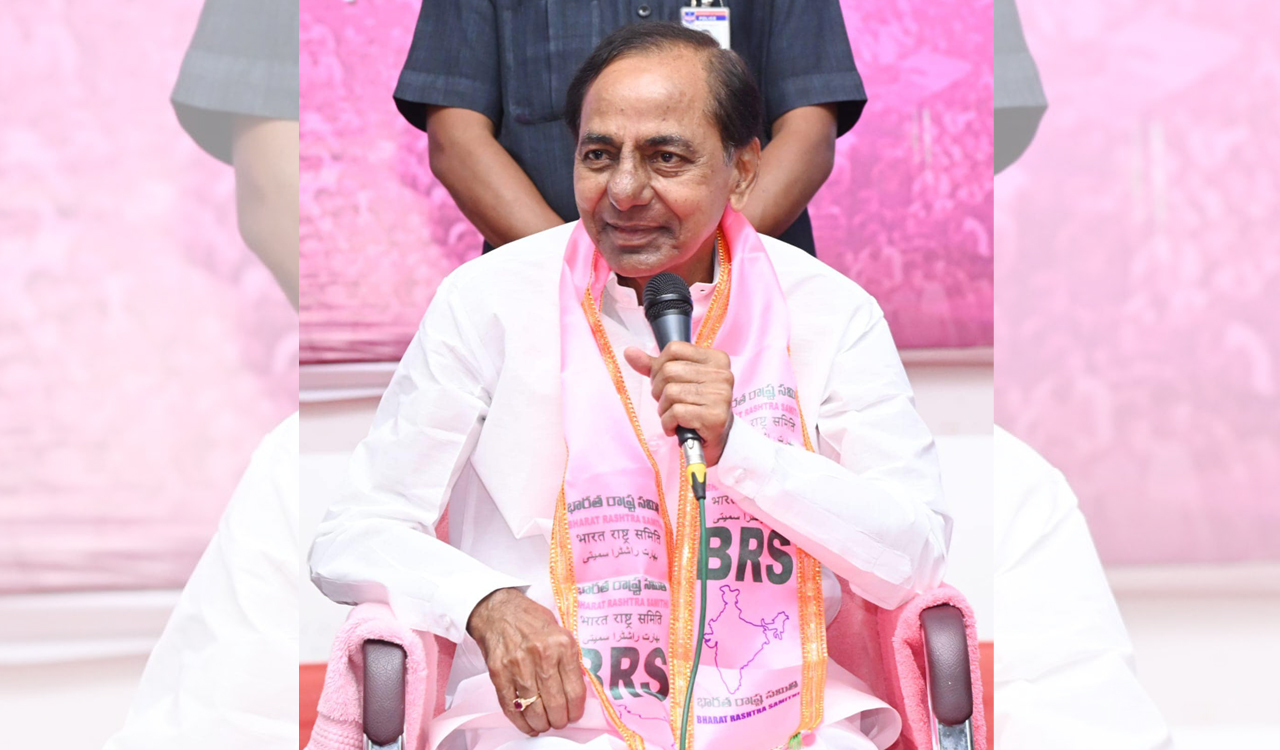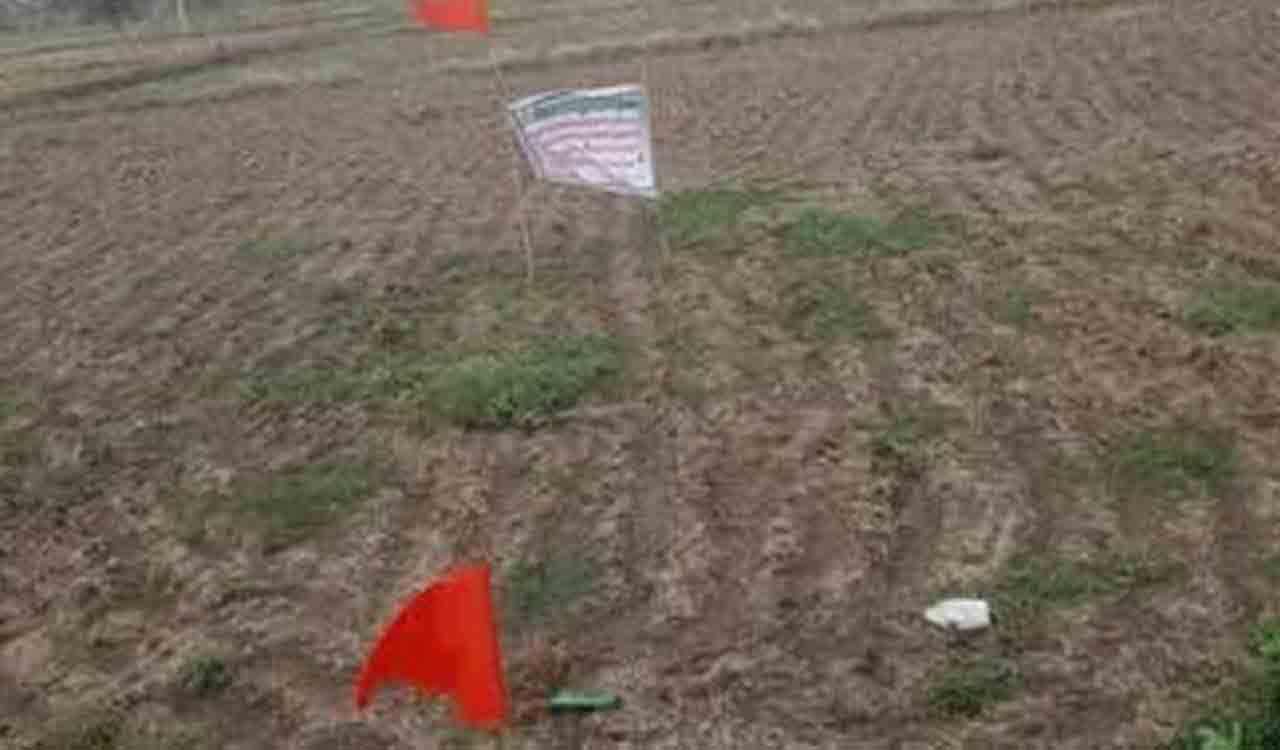Opinion: Making Telangana self-reliant manufacturing
Achieving manufacturing self-reliance is a strategic imperative for State’s future, with MSMEs playing a pivotal role in this transformation

By Vidyasagar Veesamsetty
Telangana has demonstrated remarkable economic growth since its formation in 2014. With a diverse economy encompassing agriculture, services and manufacturing sectors, the State possesses immense potential to achieve self-reliance in manufacturing. This pursuit of manufacturing self-reliance extends beyond mere economic strengthening—it promises to create substantial job opportunities, reduce import dependencies and foster innovation across the State.
At the heart of this ambitious endeavour lies the crucial participation of Micro, Small, and Medium Enterprises (MSMEs), which serve as the backbone of industrial development and economic growth. The transformation of Telangana into a manufacturing hub requires a comprehensive strategy that addresses multiple aspects of industrial development while ensuring sustainable and inclusive growth.
Strengthening Infrastructure
The foundation of manufacturing self-reliance rests upon robust infrastructure development. Telangana needs to establish dedicated industrial clusters and parks catering to various sectors, including electronics, textiles and automotive manufacturing. These clusters must be equipped with state-of-the-art infrastructure, incorporating advanced road networks, reliable power supply and efficient water facilities. The focus should extend to promoting eco-friendly and sustainable industrial infrastructure that aligns with modern environmental standards. Special attention must be paid to developing specialised zones that cater to specific industry requirements, ensuring optimal resource utilisation and operational efficiency.
Through focused efforts in infra development, skill enhancement, financial support, etc, Telangana can create an enabling environment for MSMEs
Connectivity plays a vital role in manufacturing success. The State must prioritise improving connections to major ports, transportation hubs and logistics centres to facilitate seamless movement of raw materials and finished products. Additionally, enhancing digital infrastructure becomes crucial in supporting Industry 4.0 technologies, enabling efficient supply chain management and modern manufacturing processes. The development of smart transportation networks and integrated logistics solutions will be essential in reducing operational costs and improving overall competitiveness.
Skill Development
The workforce forms the cornerstone of manufacturing excellence. Telangana must forge strong collaborations with educational institutions to design and implement industry-relevant vocational courses specifically tailored to MSME requirements. The establishment of skill development centres within industrial clusters can provide practical training and continuous skill upgrades, ensuring a steady supply of qualified workers for the manufacturing sector. This should be complemented by regular assessment of industry needs and corresponding updates to training programmes to maintain their relevance.
Technology adoption represents another crucial aspect of skill development. The State should actively promote the implementation of modern manufacturing technologies, including automation and digitalisation, to enhance MSME competitiveness. This can be achieved through facilitated technology transfer programmes and targeted subsidies for technology adoption, enabling smaller enterprises to stay competitive in an increasingly digital manufacturing landscape. The focus should be on creating a technology-savvy workforce capable of operating and maintaining advanced equipment while fostering innovation and continuous improvement.
Regulatory Reforms
A conducive regulatory environment is essential for manufacturing growth. Telangana should focus on streamlining approval processes for establishing MSMEs and implement a comprehensive single-window clearance system to minimise bureaucratic obstacles. This simplified regulatory framework can significantly reduce the time and resources required for business establishment and operation. Regular review and updating of regulations ensure they remain relevant and supportive of industrial growth while maintaining necessary safeguards.
Labour reforms deserve special attention in manufacturing. The State must ensure that labour laws strike a delicate balance between protecting workers’ rights and facilitating ease of doing business. Encouraging constructive dialogue between MSMEs and unions can help establish fair working conditions while maintaining productive industrial relations. The implementation of modern labour practices and safety standards will create a motivated and productive workforce.
Financial Support
Access to capital remains a critical challenge for many MSMEs. Telangana should work towards facilitating easier credit access by promoting specialised lending institutions and schemes tailored to MSME needs. It should also encourage venture capital firms to invest in promising MSME ventures, providing alternative funding sources for growth and expansion. Innovation in financial products and services, including supply chain financing and equipment leasing, can provide additional support to manufacturing enterprises.
Financial incentives play a crucial role in MSME development. The State should implement comprehensive packages of tax incentives, subsidies and grants to encourage MSME growth and innovation. Special attention should be paid to incentivising research and development activities within MSMEs, fostering technological advancement and innovation in the manufacturing sector. The creation of special funding mechanisms for export-oriented units can help boost international competitiveness.
Sustainability and Environment
Environmental consciousness must be integrated into manufacturing processes. Telangana should actively promote eco-friendly manufacturing practices among MSMEs through targeted incentives for adopting clean technologies. The implementation of stringent environmental regulations can help minimise pollution while encouraging sustainable production methods. Regular environmental audits and support for green certification programmes can help industries maintain high environmental standards.
Efficient waste management systems within industrial clusters are essential for environmental protection. The State should promote recycling initiatives and waste-to-energy projects among MSMEs, creating a circular economy that minimises environmental impact while maximising resource utilisation. The development of shared environmental infrastructure can help smaller units manage their environmental responsibilities more effectively.
Market Access
Export promotion requires dedicated support mechanisms. The State should assist MSMEs in identifying international market opportunities, navigating complex export regulations, and participating in international trade exhibitions. Establishing specialised export promotion agencies can facilitate market access for MSME products in the global marketplace. Regular trade missions and participation in international forums can help showcase Telangana’s capabilities to the world.
Telangana should foster collaborations between large corporations and MSMEs to boost local demand for manufactured products. Additionally, running awareness campaigns promoting locally manufactured goods can help create a sustainable domestic market for MSME products. The development of local supply chains and vendor development programmes can strengthen the manufacturing ecosystem.
Thus, achieving manufacturing self-reliance represents a strategic imperative for Telangana’s economic future, with MSMEs playing a pivotal role in this transformation. Through focused efforts in infrastructure development, skill enhancement, regulatory reforms, financial support, sustainability initiatives and market access facilitation, Telangana can create an enabling environment where MSMEs thrive and contribute significantly to manufacturing self-reliance.

(The author is Chairman and MD, Sagar Asia Pvt Ltd, Hyderabad)
Related News
-
KCR extends Christmas wishes to people of Telangana
-
Telangana’s micro-sculptor Ajay Kumar sculpts Brazil’s “Christ the Redeemer” in the eye of a needle
-
Leopard spotted and panic prevailing in Nandipahad village under Maddur mandal
-
Unpaid loans: DCCB erects auction flexis in farmers’ fields in Kamareddy
-
Cartoon Today on December 25, 2024
3 hours ago -
Sandhya Theatre stampede case: Allu Arjun questioned for 3 hours by Chikkadpallly police
3 hours ago -
Telangana: TRSMA pitches for 15% school fee hike and Right to Fee Collection Act
4 hours ago -
Former Home Secretary Ajay Kumar Bhalla appointed Manipur Governor, Kerala Governor shifted to Bihar
4 hours ago -
Hyderabad: Organs of 74-year-old man donated as part of Jeevandan
4 hours ago -
Opinion: The China factor in India-Nepal relations
4 hours ago -
Editorial: Modi’s Kuwait outreach
4 hours ago -
Telangana HC suspends orders against KCR and Harish Rao
5 hours ago




